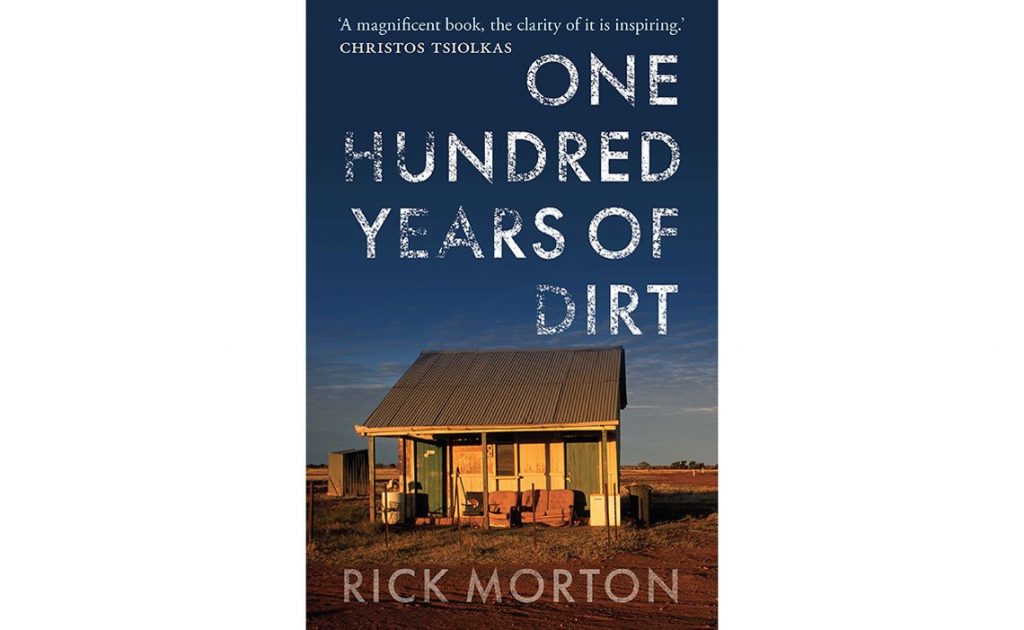One Hundred Years of Dirt, Rick Morton, Australia, 2018
A book filled with anger, often justifiable, One Hundred Years of Dirt falls somewhere between memoir and social treatise. Descriptions of the abuse, meted out first by Morton’s grandfather, George, and later by Morton’s father, Rodney, are interspersed with statistics and much research information touching on a variety of areas, such as alcohol and drug abuse, homosexuality and the impact of class on Australian society.

As Morton writes: ‘To understand a person, you must understand his father‘ and, ‘I have wanted to die more times than I can count because I have not yet found a way to be loved in a way I can trust.’ These two quotes sum up the impact of the past on Morton’s life, which is shaped by low self esteem and a sense of injustice.
The Morton family once owned 0.4% of Australia, collected into sprawling cattle stations in the south-west of Queensland. George Morton was a cruel, abusive man who subjugated his wife and terrorized his seven children, while Rodney, the youngest, intent on survival at any cost, escaped when he was still in his teens. He was already a damaged person emotionally, and in his marriage to Deborah he was both cruel and abusive.

Rodney Morton’s eldest child, Toby, adores his father and loves the rough, masculine outdoors’ life of the station his father is managing. But, when he is twelve, after a dreadful accident where he narrowly avoids being burnt alive, he returns home from months in hospital to learn that his father has taken up with the nineteen-year-old governess. It is more than possible that it was at that point that Toby’s life began its steep spiral downwards.
Deb, kicked out of home, takes her three children and moves into a run-down housing-commission house in Charleville. Without any kind of support and no workplace skills, Deb does her best to clothe and feed her children as her eldest son is slowly pulled into a life of petty crime and, finally, alcohol and drug abuse.
Rick, the middle child, is Toby’s opposite. He is studious – almost effeminate – and dislikes sport. Although he comments on his inability to show affection, he has a close relationship with his mother and a distant, but caring, relationship with his sister, seven years his junior.

One Hundred Years of Dirt is not just an account of how Rick beats great odds to become a journalist; it is not even a story about him accepting that he is homosexual; it is a story about inequality caused by class and the uneven distribution of money. It is also a story of the ‘sins’ passed down from one generation to the next. It illuminates the fact that many families in Australia, through being dealt the wrong hand of cards, are fighting the same exact same battle as Rick as his family, while having to contend with prejudice and a general attitude of superiority.
Although I personally found the constant switching between memoir and factual reporting irritating, I understand that Morton may have needed to give some social background to the situations that have moulded his life. At times I felt that the memoir, without all the back-up information, could have been sufficient and could have, perhaps, carried more impact. Nevertheless, my own opinion to one side, this is definitely a book worth reading.